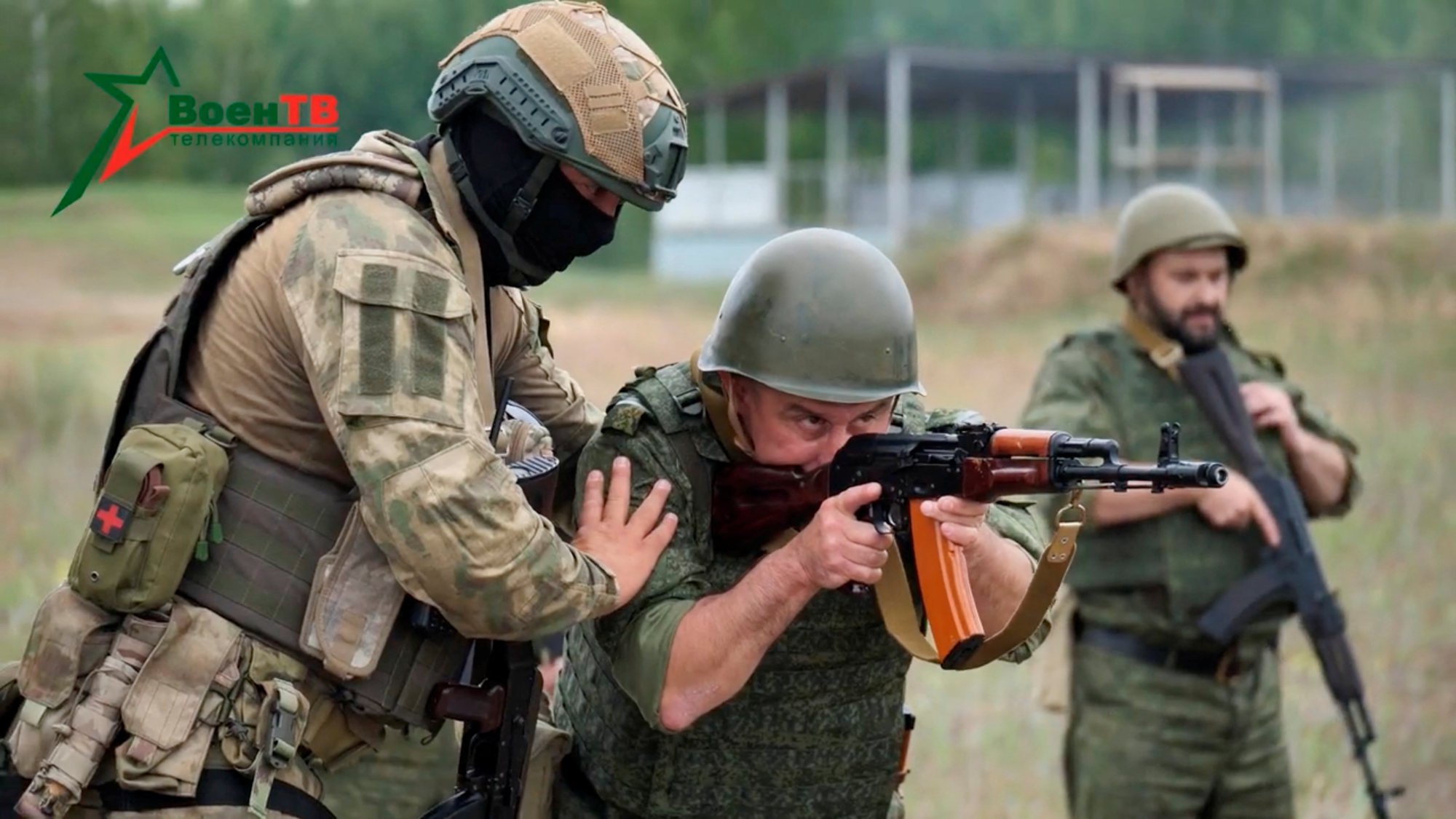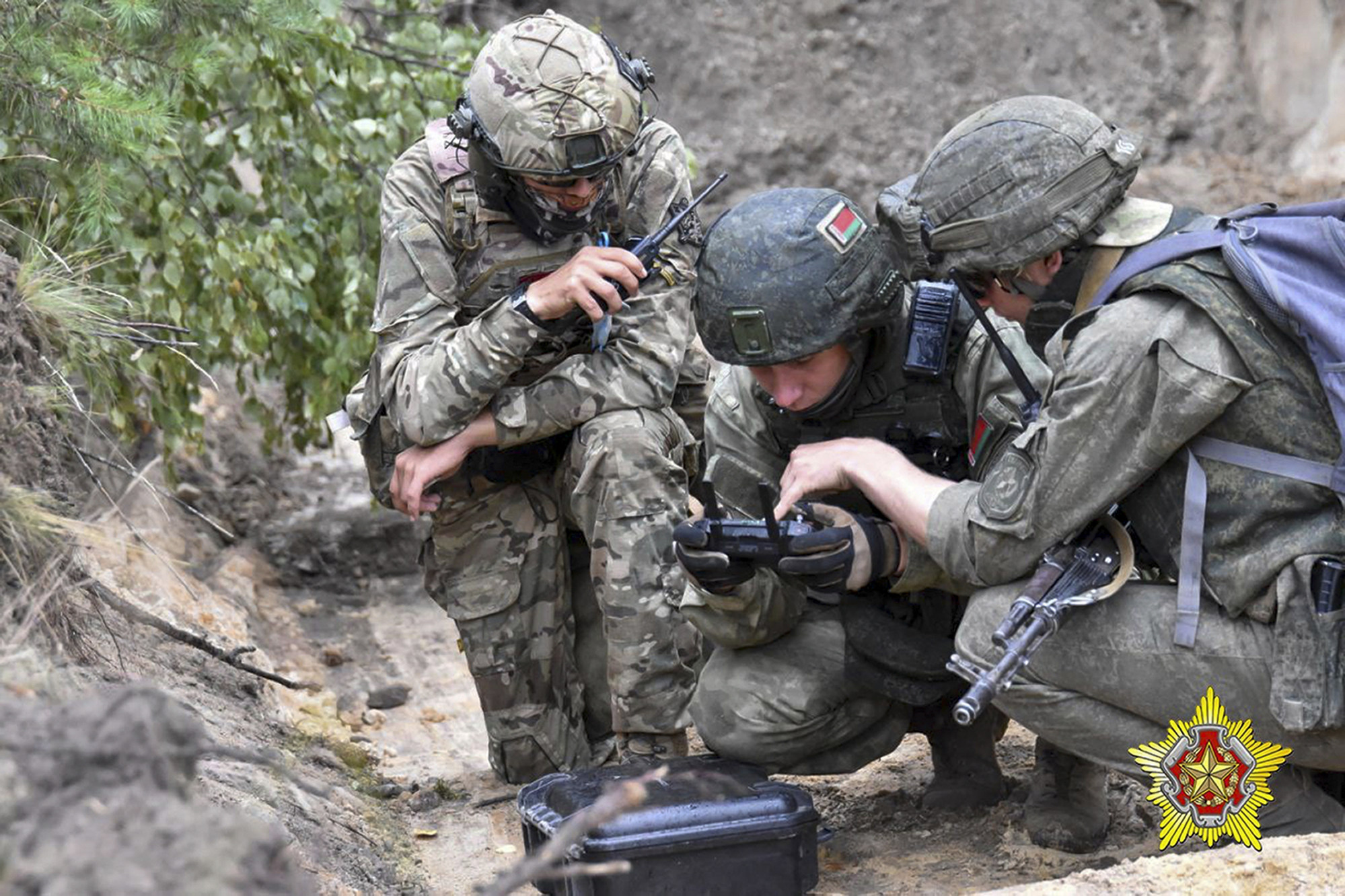
Ukraine war: thousands of Wagner mercenaries have arrived in Belarus, monitoring group says
- Arrival of Wagner fighters comes as Belarus reviews security on its borders with Ukraine and Poland
- Members of Russian mercenary group are being hosted by Minsk after their failed uprising back home
Thousands of Russia-linked Wagner Group mercenaries have arrived in Belarus since the group’s short-lived rebellion, a military monitoring group said.
Between 3,450 and 3,650 soldiers have travelled to a camp close to Asipovichy, a town 230km (140 miles) north of the Ukrainian border, according to Belaruski Hajun, an activist group that tracks troop movements within the country.
Belarusian President Alexander Lukashenko welcomed Wagner forces into the country after brokering a deal between the Kremlin and mercenary chief Yevgeny Prigozhin last month, ending the group’s failed revolt against Russian military leaders.
The Wagner chief called the mutiny a “march of justice” to oust the top military leaders. The mercenaries faced little resistance and downed at least six military helicopters and a command post aircraft, killing a number of Russian troops.

The revolt posed the most serious threat to Russian President Vladimir Putin during his 23-year rule, eroding his authority and exposing the government’s weakness.
Satellite images show that about 700 vehicles and construction equipment have also arrived in Wagner convoys to Belarus, Belaruski Hajun said on Monday.
Putin hosts Belarus’ Lukashenko, calls Ukraine’s counteroffensive a failure
Last week, a Wagner commander said in a statement posted on a messaging app channel linked to the company that about 10,000 Wagner troops were set to deploy to Belarus.
Prigozhin registered a “real estate management company” in Belarus last week under the name Concord Management and Consulting in Belarus.
Documents analysed by independent Belarusian media outlet reform.by showed that the company’s registered address was in the same village as the Wagner mercenary camp.
Meanwhile, local officials said on Monday that the mercenaries were continuing to work with Belarusian troops, including at training grounds close to the Polish border.
“Wagner fighters who have really been in the heat of combat are passing on valuable information and experience to our servicemen,” the Belarusian Defence Ministry said in a statement.

Interior Minister Ivan Kubrakov met Wagner commanders at a training centre to draw up a “clear plan of action”, a statement said.
“In view of the difficult situation near the republic’s borders, it is especially important to be ready to respond to potential challenges and threats,” Kubrakov’s ministry quoted him as stating.
He was quoted as hailing the mercenaries’ “practical experience” following their months-long combat in eastern Ukraine, notably in bloody battles such as the one for the flashpoint city of Bakhmut.
Prigozhin greets Wagner troops in Belarus, says out of Ukraine war for now
Poland, a former Warsaw Pact member which has been a full member of the US-led Nato military alliance since 1999, began moving over 1,000 troops to the east of the country earlier this month amid rising concern that Wagner fighters in Belarus could lead to increased tension on its border.
Belarus has regularly accused European Union member Poland of provocations on their common border.
Russian propaganda repeatedly claims without foundation that Poland, a close ally of the attacked Ukraine, harbours its own intentions of territorial expansion.

Meeting with the Russian president on Sunday, Lukashenko said that Wagner troops were “stressing (him) out” by calling for “an excursion” into Poland.
Lukashenko’s remarks have largely been dismissed by experts, with the American Institute for the Study of War saying that Wagner troops there could not threaten Ukraine and Poland.
“There is no indication that Wagner fighters in Belarus have the heavy weaponry necessary to mount a serious offensive against Ukraine or Poland without significant rearmament,” the think tank said in a statement on Sunday.
Russia’s Wagner mercenaries emerge in Belarus as troop trainers
The deputy head of Ukraine’s Main Intelligence Directorate, Vadym Skibitsky, also said that there was no “direct threat” from Russian mercenaries in Belarus, but that Kyiv would be keeping a close eye on Wagner fighters.
“Our assessment is very simple: today there is no direct threat (from Belarus), but we are ready. We are monitoring everything related to the so-called Wagner missile defence system,” he told journalists, according to the directorate’s Telegram channel.
Although Belarus, a staunch Russian ally, is not fighting directly in Ukraine, the Russian army has used its territory and aerodromes as a rear base in advance of their invasion of Ukraine in February last year.
Putin last Friday warned that Moscow would use “all the means at our disposal” to protect Belarus in case of an attack.
“Unleashing aggression against Belarus will mean aggression against the Russian Federation,” Putin said.
Russia has in recent weeks begun stationing tactical nuclear weapons in Belarus for the first time.
Additional reporting by Reuters and Agence France-Presse

